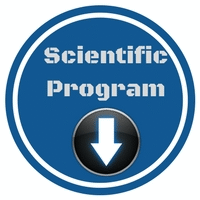Mohmed Elrodini
Ministry of Health and Population & Nile Trade Co, Egypt
Title: Molecular pathogenesis of gastric ulcers and strategies for prevention
Biography
Biography: Mohmed Elrodini
Abstract
The purpose of this review is to summarize the pertinent literature published in the present era regarding ulcerogenic effectors, and all available therapeutic concepts in this regard including; different physiological/pathological changes in response to H. pylori infection, nonsteroidal anti-inflammatory drugs (NSAID), bile acids, nitric oxide, copper complexes, acid pump inhibitors, histamine blockers, curcuminoids, cytokines and/or growth factors and finally probiotics. Because of the partial understanding of gastric ulcer pathogenesis three major hypotheses were strongly speculated and widely documented. Firstly, the hyperacidity hypothesis entailing the disturbance of the gastric acid, histamine, gastrin and somatostatin. Secondly, the eicosanoid imbalance hypothesis exploiting changes in the microcirculation through the vasoconstrictor eicosanoids such as TXA2 and vasodilator cytoprotectant eicosanoids such as PGE2. Thirdly, the infective hypothesis implementing H. pylori as the major pathogenic effectror for the gastroduodenal ulceration. In fact, all of the previous effectors could be involved and possibly employing inflammatory/antiinflammatory, oxidative stress and/or angiogenic disturbance.

